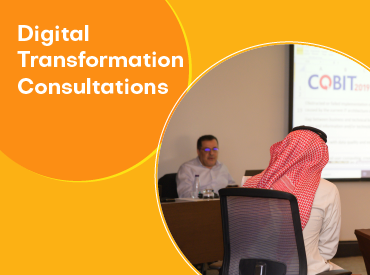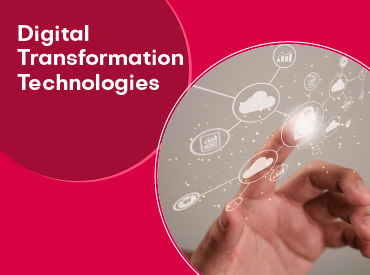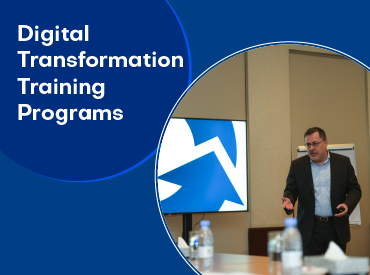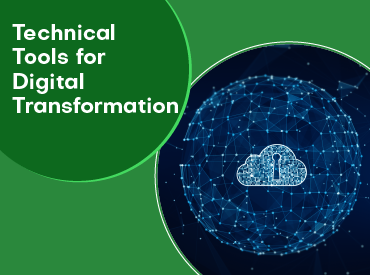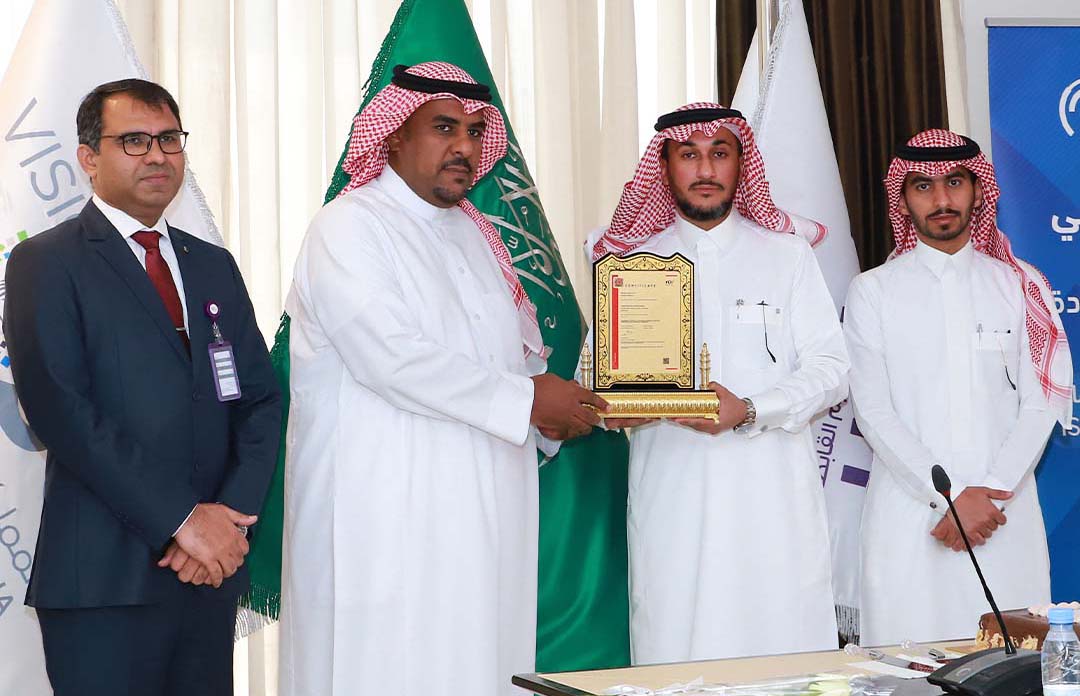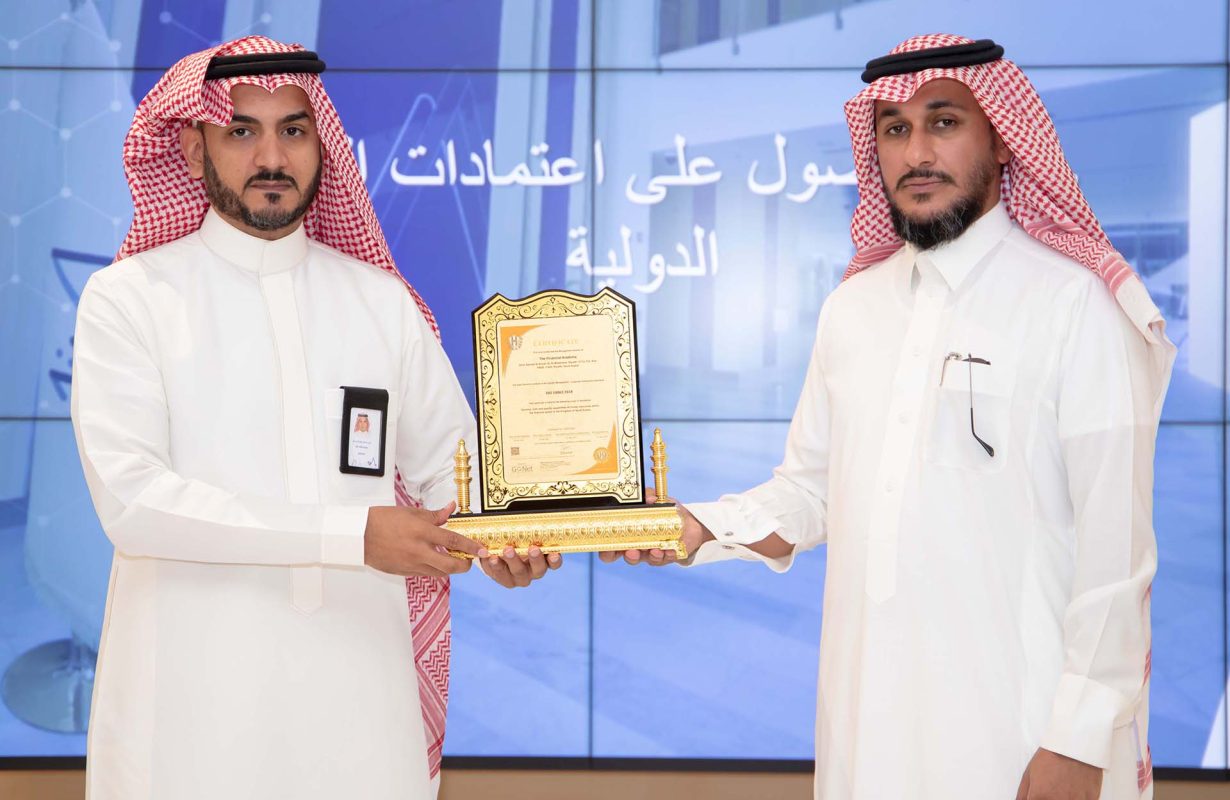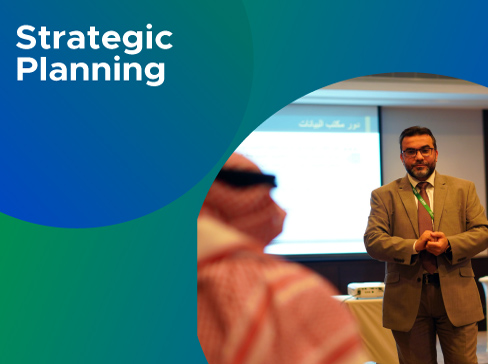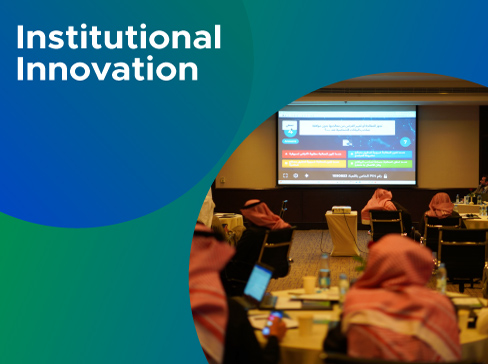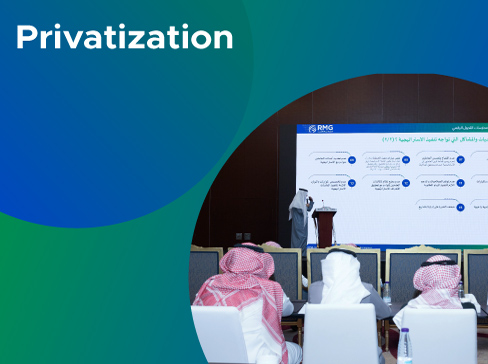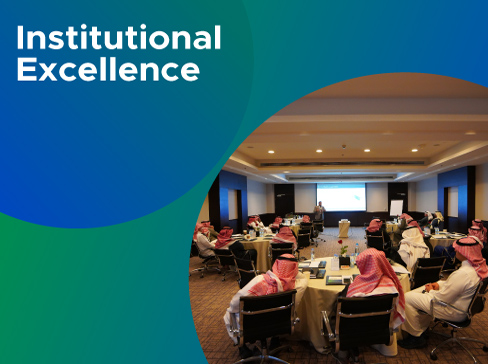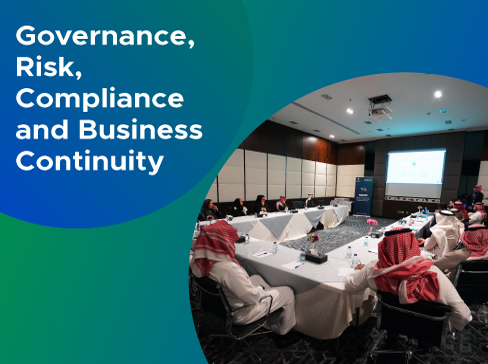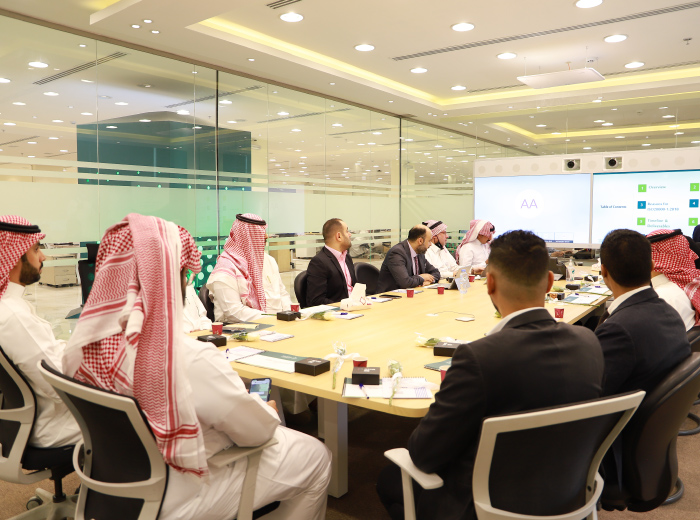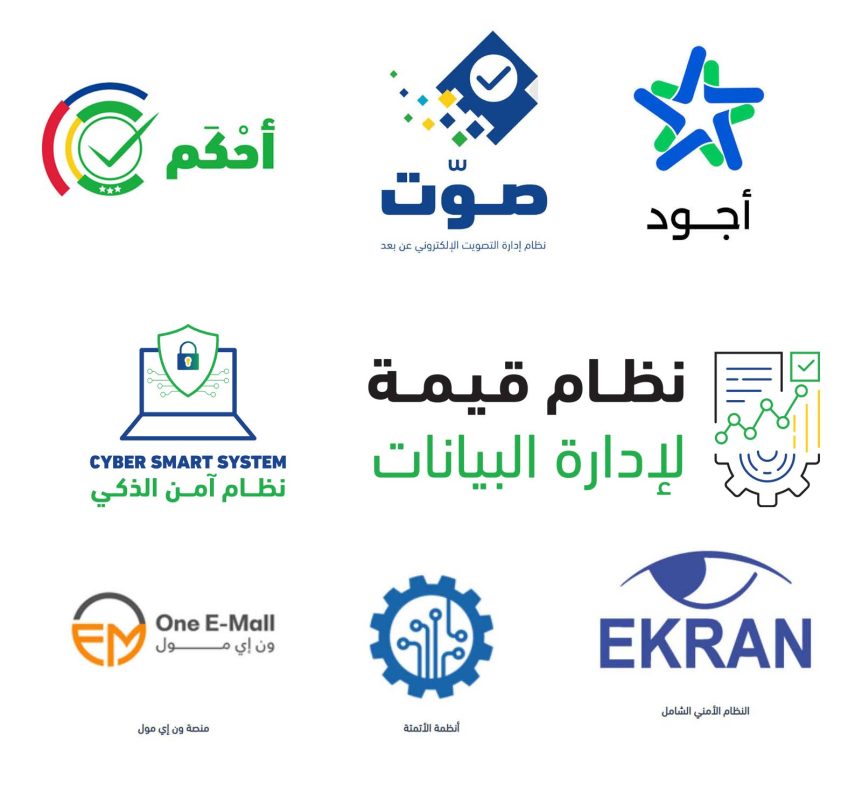How can you manage you projects, following modern methodologies?
Project management is considered one of the sectors that have flourished over the last period, and working as a project manager is now a career choice for many holders of higher education degrees. Moreover, many educational and training institutions are now offering advanced certificates in project management, and more companies are founding their own project management office or department in sectors ranging from healthcare to construction, development, and even entertainment.
But, what is a project? And how does it differ from a program or a portfolio?
This question is especially important when we observe the different concepts relevant to project management, for some define a project as a temporary act with a beginning and an end, and others define it as something with a particular nature, in contrast to the everyday operations in company.
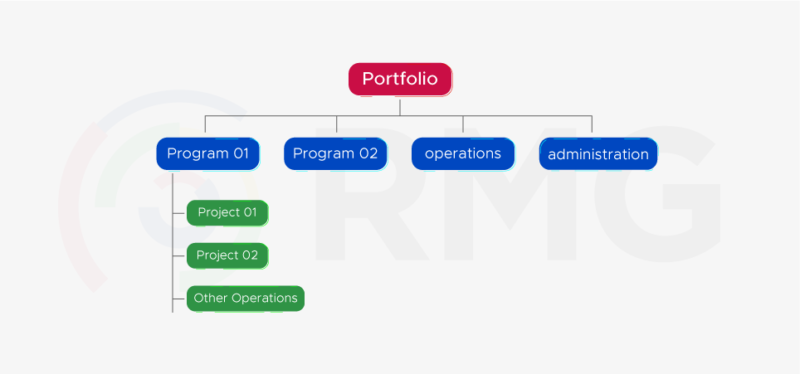
In fact, the project management institute PMI defines a project as a “temporary endeavor to reach or create a unique result or service” this definition includes two criteria to define a project:
- Temporary nature, as all project must be limited in time, and do not constitute regular, ongoing activities.
- Unique outcome, demonstrated in reaching a unique result, such as the design of a new product, finding out the solution to a problem, or writing a book.
In many cases, a project can be one of several projects that together aim at reaching a bigger goal and this is what we call a program. Each program is, therefore, constituted of several projects and operations that help the organization achieve some goal. For example, a project to develop the visual ID of a business, and a project to design new promotional campaigns, can be considered as components in a new marketing program.
Following the same manner, we can define a portfolio as a group of programs managed in an organization to reach a higher common goal through different approaches or actions.
Is project management just another trend?
Another question that comes across when we talk about project management, is whether it’s actually something we need, or jest another trend? The widespread talk about project management has pushed some to question the validity of tools and processes used in project management, and even consider these methodologies just trends that have captured the interest of CEOs and corporates. In fact, it’s not refutable that project management is indeed a trend. Nevertheless, this doesn’t undermine the importance and need of project management, which can be illustrated in the highly complex challenges that face the current changing business environment. 200 years ago, industries would require decades to see a disruptive change taking place, whilst nowadays, the business environment faces rapid changes and disruptive technologies that reshape whole industries overnight.
Adding to that, the open borders in front of multinational companies, with the high rates of competition, and the growing tendency to depend on the intellectual capital in organization, have all contributed to increasing the need for professional project management to ensure higher effectiveness and efficiency in business management, and a sustainable position of organizations in the changing markets.
The need for professional project management is even higher in organizations that adopt a projectized structure, such as construction companies, who work more in the pattern of project, rather than in ongoing operations.
What are the benefits of successful project management?
The benefits of successful project management include:
- Better opportunities for the organization to achieve its aims and results;
- Planning and allocation of resources according to priorities, and in a way that ensures the most efficient usage;
- Clear definition of project scope and limitations from the start;
- High productivity and quality of work;
- Better response to the needs of customers and project stakeholders.
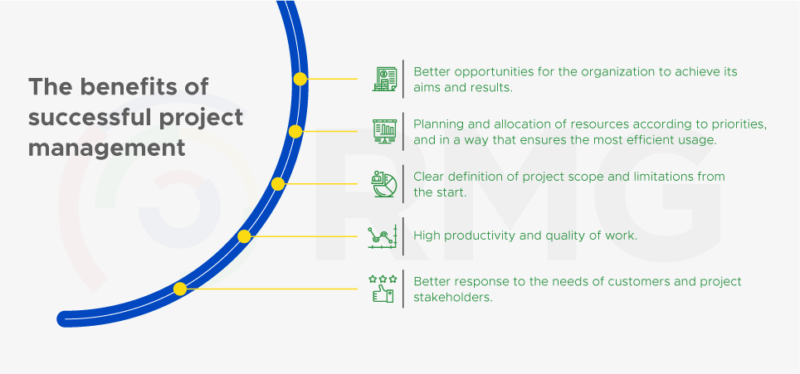
What are the benefits of successful project management?
- The American school Project Management Professional PMP:
This is one of the most known and prestigious methodologies in project management, and is developed by the project management institute PMI, which is an international NGO specialized in project management and based in Pennsylvania, USA.
The methodology of PMP is based on 5 stages of project work: initiating, planning, executing, monitoring and controlling, and closing. The work of the project is then allocated to ten areas of knowledge:
- Project integration management;
- Scope management;
- Schedule management;
- Cost management;
- Quality management;
- Resources management;
- Communications management;
- Risks management;
- Procurement management;
- Stakeholders management.
The certificate offered by the PMI is one of the most prestigious and highest return on investment globally, and certification usually requires the attendance of training sessions, examinations, and fees to join the institute.
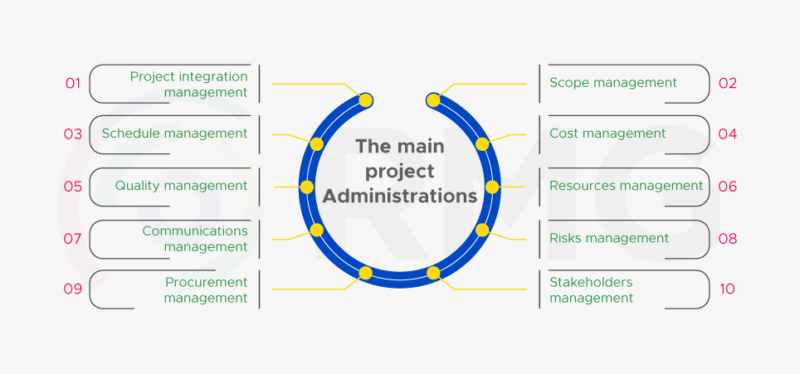
- The English school Project Management in Controllable Environments PRINCE 2:
This is usually the second common choice between traditional methodologies in project management, and is adopted in the UK, several countries in Western Europe, and Australia. The methodology provides a framework and certification system, and divides the project into controllable phases, and uncontrollable phases.
In general, PRINCE 2 identifies 6 areas as performance targets:
- Scope
- Timeframe
- Risk
- Quality
- Results or benefits
- Costs
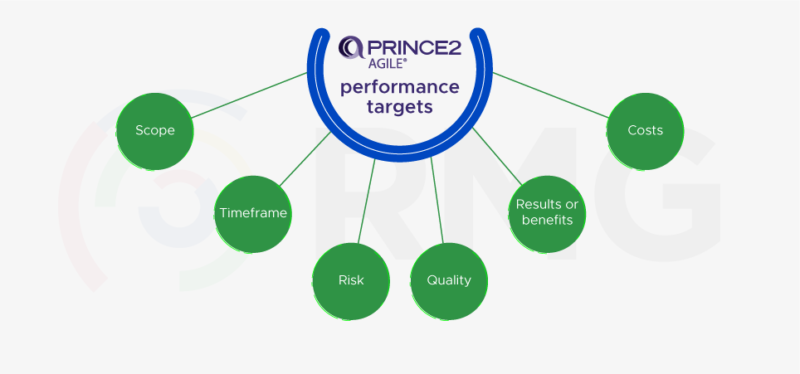
And is follows seven principles in project management:
- The need to continuous business justification;
- Learning from experience;
- Defined roles and responsibilities;
- Management in cycles;
- Management by exclusion;
- Focus on products and outputs;
- Tailoring the project in alignment with the surrounding environment.
Agile project management. How and why did it evolve?
Although the traditional methodologies of project management have seen big success, their tools have been rendered somehow limited with the advances imposed by the fourth industrial revolution.
This was a trigger to develop new concepts in project management, which soon became what we now call agile project management.
And since professionals in project management were shifting rapidly to use agile tools, both the American and English institutions have adopted their own versions of agility.
- Agile project management in the project management institute PMI:
The PMI provides certification of Agile Certified Practitioner, based on a methodology that emphasizes the principle of accumulation in project management, rather than linear flow from start to end. This allows the development of products in iterative cycles instead of planning it all in once, and this way outputs can be tested, validated, and evaluated frequently, while scope and quality are maintained within the time and cost limits.
- Prince 2 Agile:
The PRINCE 2 Agile methodology was developed to adapt with the growing needs for agile tools in organizations, and is provided as a certification to proficiency in both the governance tools of PRINCE 2, and the agile tools that ensure effectiveness and flexibility.
Even though it takes more than this articles can provide to illuminate the differences between the agile and non-agile methodologies, we can briefly state that agile management put more focus on frequent customer feedback, and is therefore more adaptable. On the other hand, non-agile management focuses on clearly defined plans, which make implementation and follow-up easier for the project teams.
What about SCRUM?
Scrum is defined as the framework in which people work to reach complex solutions with the highest possible value. In fact, SCRUM can’t be defined as an independent work methodology, but rather as a multi-component framework focused on experimentation and testing instead of programmatic planning, while giving high importance to individuals, and their skills in dealing with project complexities.
Agile methodologies are thus, dependent on the principles of SCRUM to different levels, and all try to define a work methodology within this framework.
SCRUM is based in 5 values:
- Courage
- Focus
- Commitment
- Openness
- Respect
It also adopts the principle of cycles in work, where each cycle is independently planned, and no change in schedules can take place once the work starts in this cycle.
As we can see, project management is highly complicated, and requires accumulation of knowledge and experience, as well as expertise in different methodologies to choose what’s best for each case. This is why many organizations build their own project management office.
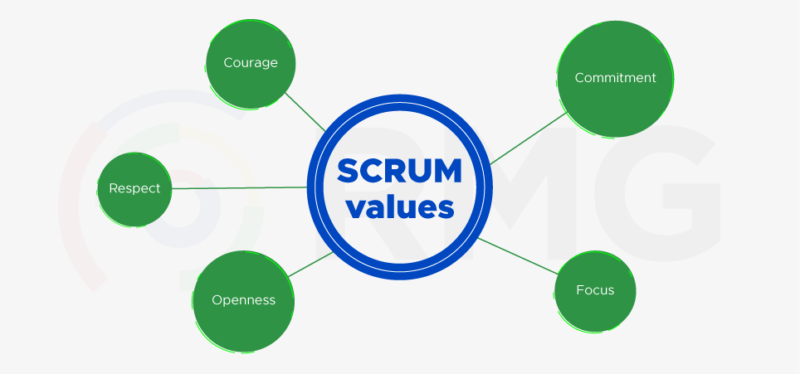
Fine. How can I start a project management office PMO in my organization?
This is certainly not an easy question to answer. However, the following guidelines can be helpful:
- Define your goal: Each organization has its own goals from having a project management office, as some aim at creating a hub to accumulate and manage knowledge and expertise, while others seek to manage all their projects through the office. Yet, some organizations only require the PMO to provide guidelines for project management practices.
- Define the PMO authorities, and choose the right team: it’s important to decide on whether the PMO has high or low authority, and whether it acts only in monitoring or in execution as well. The process of building the right team ensues: will it be composed of current or new staff? Maybe a combination of both?
- Define the annual plan for the PMO: this should have an operational section focused on daily work, and a strategic section focused on the vision of the organization.
- Allocate the right resources: whether financials, facilities, equipment, or technology. It’s also important to pay attention to training the team and building their capacity to fulfill the new role responsibilities.
- Continuously monitor and evaluate: although the PMO is mostly responsible for the monitoring and evaluation of other projects, it shouldn’t be left out of M&E itself.
These steps can be a general roadmap to start a PMO. However, different challenges will face project management in the real world.
What are the common challenges that face project managers?
Some of these challenges are:
- Political and economic events which have impact on the business activity in a country, and across border;
- Global and environmental events, such as the spread of COVID19, which has disrupted the way most project are managed;
- Difficulties in clearly defining the needs of stakeholders, and in communications among them;
- Diversity of team members who may have no previous experience working together;
- Diversity of project management methodologies, and difficulty in choosing the right one.
To overcome these challenges, many organizations depend on specialized agencies who work in business development and project management, and who can deliver a portfolio of services ranging from capacity building and coaching to subcontracting.
ما هي أكبر التحديات أمام إدارة المشاريع ؟
ومن أبرز التحديات التي تواجه العاملين في إدارة المشاريع:
- التقلبات الاقتصادية والسياسية التي تؤثر على النشاط التجاري في الدولة، وعلى الأعمال العابرة للحدود وعمل الشركات متعددة الجنسيات.
- المتغيرات العالمية والبيئية، فجميعنا اختبر تأثير انتشار فيروس كورونا على أداء الأعمال عبر العالم، ولهذا أثر كبير على إنجاز المشاريع وفق المخطط لها.
- صعوبة تحليل متطلبات أصحاب المصلحة بشكل دقيق، وصعوبة إدارة التواصل ضمن المعنيين بعمل المشروع.
- تنوع الموارد البشرية ضمن فريق المشروع، خصوصاً أن بعض الفرق لا يكون لها تجربة سابقة في العمل سوياً.
- تنوع المنهجيات في مجال إدارة المشاريع، وصعوبة اختيار المنهجية المناسبة.
ولتجاوز هذه التحديات، تلجأ الكثير من المؤسسات الراغبة بتطوير أدائها في إدارة المشاريع إلى الاعتماد على وكالات وشركات متخصصة في مجال تطوير الأعمال وإدارة المشاريع، والتي يمكن أن تقدم خدمات متنوعة تتراوح من التدريب والتوجيه إلى الإدارة بالوكالة والتعاقد.

